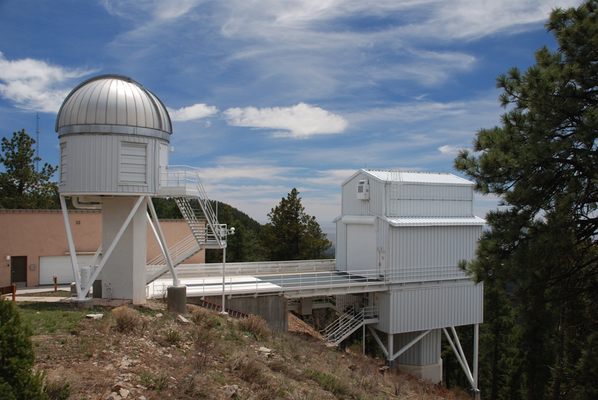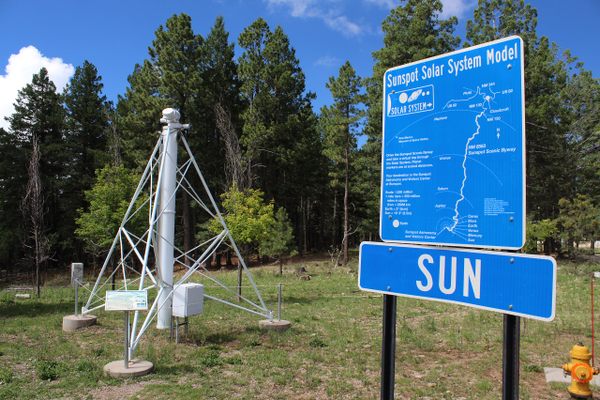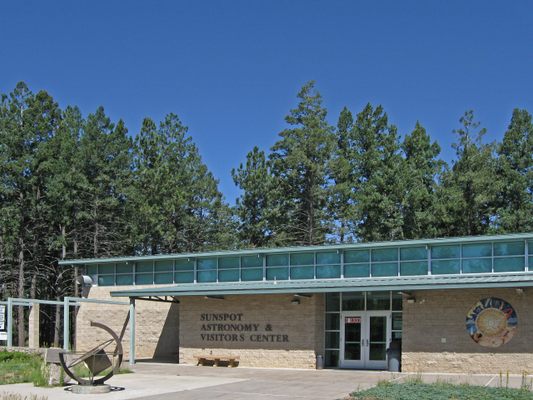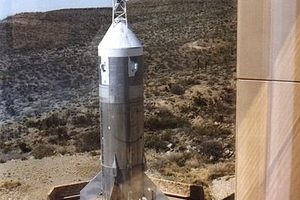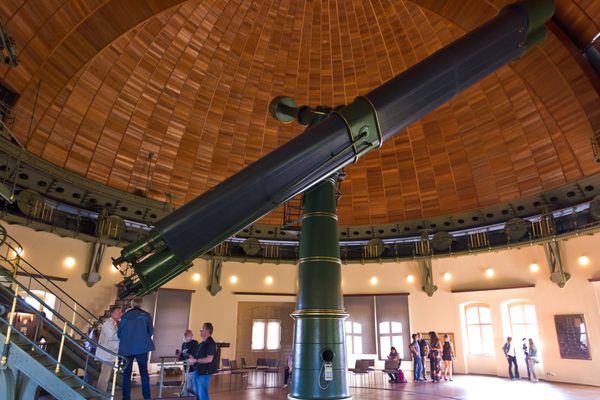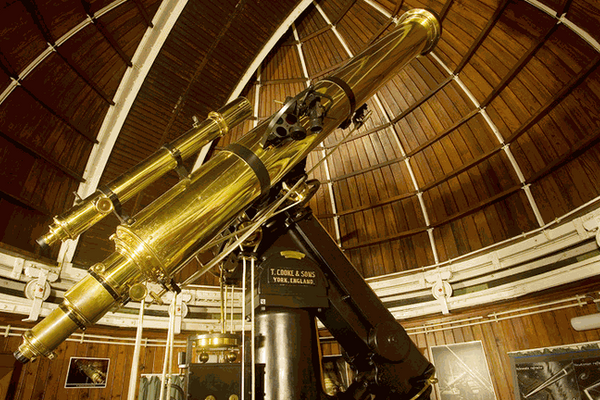About
Located at an altitude of 9,200 feet in the Lincoln National Forest, the Sunspot Solar Observatory is home to one of the largest active solar telescopes in the world: the Richard B. Dunn Solar Telescope.
During World War II, there was a growing interest in studying solar activity like sunspots and solar flares. In 1940, the High Altitude Observatory (HAO) had been established in Climax, Colorado, specifically to study the sun. At the time it was the world's highest permanent observatory for astronomy, at an elevation of over 11,000 feet above sea level. But researchers soon realized that the remote site was blanketed in clouds nearly every afternoon in the winter months. So they set out to build another solar observatory in a location with complementary weather conditions. In 1947, a location in the Sacramento Mountains was selected, and the Sunspot Solar Observatory was born.
In 1966, construction began on a new kind of telescope, one specially designed to capture high-resolution images of the sun. Its main mirror measures almost five feet across, and sits at the bottom of a 228-foot pit below the telescope building. The telescope tube sits at the top of a tall, narrow tower, with an entrance window 136 feet above the ground. The entire telescope measures more than 300 feet long and is enclosed in a vacuum tube, which prevents the sun's heat from causing turbulence that could affect the telescope's output.
Related Tags
Published
August 2, 2022

